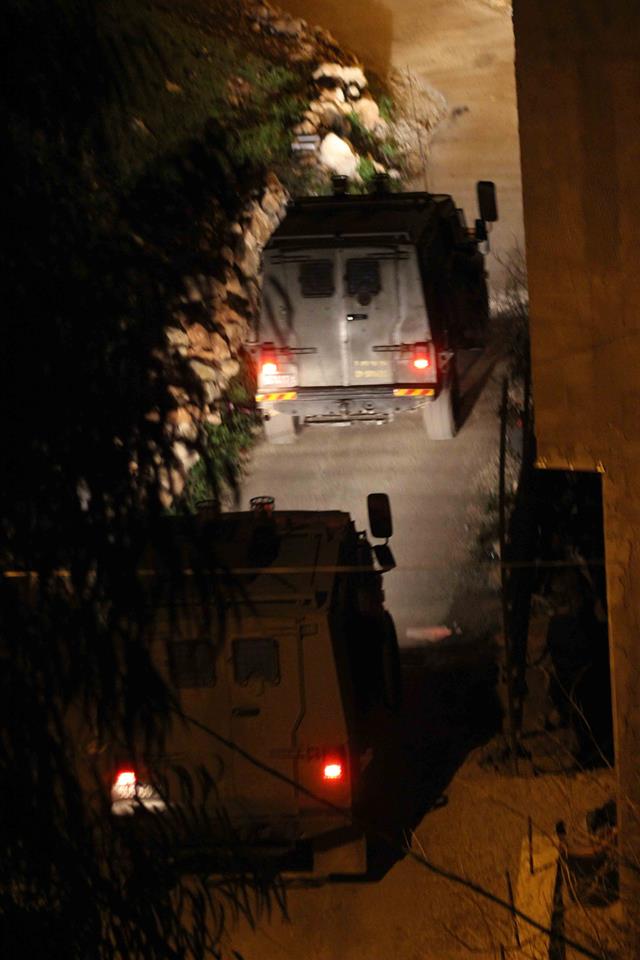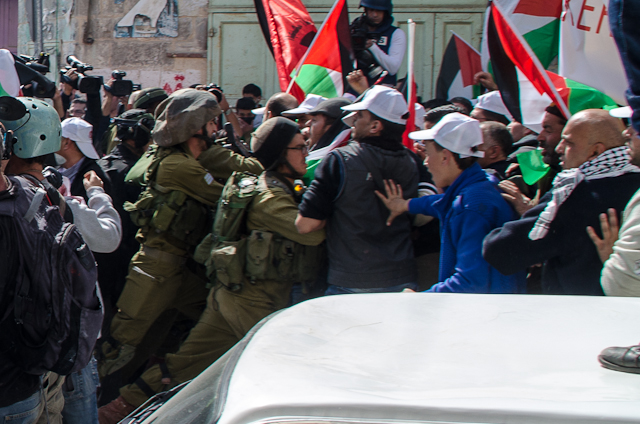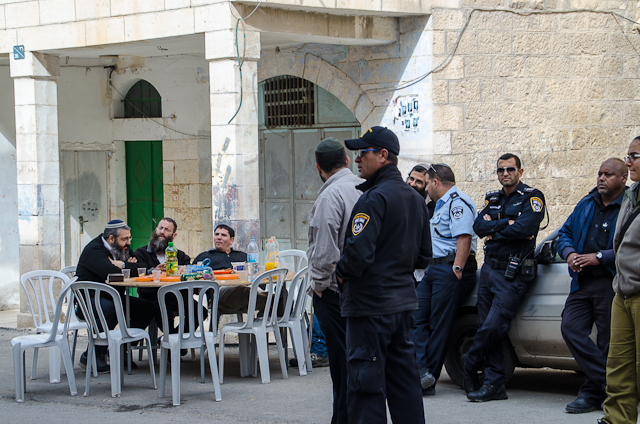Category: Reports
-
Night raid and arrests in Kafr Qaddum
20th February 2014 | International Solidarity Movement, Nablus Team | Kafr Qaddum, Occupied Palestine On Thursday the 20th of February, the violent arrests of seven villagers occurred early in the morning in the village of Kafr Qaddum. Four of those arrested, including the coordinator of the weekly demonstration, were released after six hours. The three…
-
Fifth annual Open Shuhada Street demonstration in Hebron
21st February 2014 | International Solidarity Movement, Hebron Team | Hebron, Occupied Palestine The fifth annual “Open Shuhada Street” campaign took place on Friday the 21st of February in Hebron. Five people were arrested and 13 treated after being shot by rubber-coated steel bullets during a peaceful demonstration to open Shuhada Street for Palestinians. On the 21st of…
-
Israeli settlers prevent shop renovation in Hebron
23rd February 2014 | International Solidarity Movement, Hebron Team | Hebron, Occupied Palestine On Sunday the 23th of February at around 9:30 a.m. more than ten settlers forced a Palestinian shop owner to stop renovating his shop. The settlers did this by sitting at tables and chairs they had brought from the nearby Gutnick Center in Hebron, an…



